UK News
-
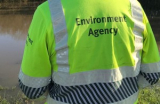 Storm Chandra sparks ongoing flood risk in Somerset and Dorset, Environment Agency warns
The Environment Agency has warned that the risk of flooding remains high across parts of Somerset and Dorset following heavy rainfall brought by Storm Chandra, urging residents to remainRead More...
Storm Chandra sparks ongoing flood risk in Somerset and Dorset, Environment Agency warns
The Environment Agency has warned that the risk of flooding remains high across parts of Somerset and Dorset following heavy rainfall brought by Storm Chandra, urging residents to remainRead More... -
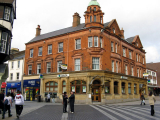 Lloyds raises profitability targets after annual profit jumps 12% despite motor finance charges
Lloyds Banking Group reported a stronger-than-expected rise in annual profit, prompting Britain’s biggest mortgage lender to upgrade its profitability outlook and announce a major shareRead More...
Lloyds raises profitability targets after annual profit jumps 12% despite motor finance charges
Lloyds Banking Group reported a stronger-than-expected rise in annual profit, prompting Britain’s biggest mortgage lender to upgrade its profitability outlook and announce a major shareRead More... -
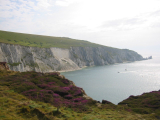 Government secures future of Isle of Wight Vestas factory, saving 300 wind energy jobs
More than 300 skilled jobs on the Isle of Wight have been saved after government intervention and fresh investment from wind turbine manufacturer Vestas secured the future of itsRead More...
Government secures future of Isle of Wight Vestas factory, saving 300 wind energy jobs
More than 300 skilled jobs on the Isle of Wight have been saved after government intervention and fresh investment from wind turbine manufacturer Vestas secured the future of itsRead More... -
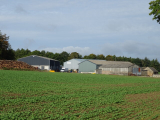 New farm pollution rules aim to clean up rivers while easing burden on farmers
Simplified regulations and tighter sludge controls designed to protect water quality and support sustainable food productionRead More...
New farm pollution rules aim to clean up rivers while easing burden on farmers
Simplified regulations and tighter sludge controls designed to protect water quality and support sustainable food productionRead More... -
 HSBC breaks $300 billion market value barrier as shares hit record high
HSBC has crossed a major milestone, briefly becoming a $300 billion company for the first time as its shares surged to a record high on Tuesday.Read More...
HSBC breaks $300 billion market value barrier as shares hit record high
HSBC has crossed a major milestone, briefly becoming a $300 billion company for the first time as its shares surged to a record high on Tuesday.Read More...

Culture
-
 Karen Newman appointed to sculpt Queen Elizabeth II for National Memorial in St James’s Park
Renowned British sculptor Karen Newman MRSS has been appointed to create a new sculpture of Queen Elizabeth II as part of the UK’s national memorial to the late Monarch, the QueenRead More...
Karen Newman appointed to sculpt Queen Elizabeth II for National Memorial in St James’s Park
Renowned British sculptor Karen Newman MRSS has been appointed to create a new sculpture of Queen Elizabeth II as part of the UK’s national memorial to the late Monarch, the QueenRead More... -
 UK government unveils £1.5bn culture investment to save 1,000 local venues and restore national pride
The government has announced a landmark £1.5 billion investment in arts, culture and heritage, pledging to safeguard more than 1,000 local venues across England and reverse years ofRead More...
UK government unveils £1.5bn culture investment to save 1,000 local venues and restore national pride
The government has announced a landmark £1.5 billion investment in arts, culture and heritage, pledging to safeguard more than 1,000 local venues across England and reverse years ofRead More... -
 Museum of Oxford reveals 2026 programme focused on community stories, talks and events
The Museum of Oxford has unveiled its 2026 programme, setting out a year of talks, tours and hands-on events that place local people and shared histories firmly centre stage. The newRead More...
Museum of Oxford reveals 2026 programme focused on community stories, talks and events
The Museum of Oxford has unveiled its 2026 programme, setting out a year of talks, tours and hands-on events that place local people and shared histories firmly centre stage. The newRead More... -
 £9m Claude Lorrain masterpiece faces possible export as UK scrambles to keep Baroque treasure
A Baroque landscape masterpiece valued at £9 million has been placed under a temporary export ban, giving UK institutions a final opportunity to keep the work in the country.Read More...
£9m Claude Lorrain masterpiece faces possible export as UK scrambles to keep Baroque treasure
A Baroque landscape masterpiece valued at £9 million has been placed under a temporary export ban, giving UK institutions a final opportunity to keep the work in the country.Read More... -
 Welsh towns invited to compete for first-ever UK Town of Culture title
Could a Welsh town become the very first UK Town of Culture? Communities across Wales are being invited to step into the national spotlight as the UK launches its inaugural Town of CultureRead More...
Welsh towns invited to compete for first-ever UK Town of Culture title
Could a Welsh town become the very first UK Town of Culture? Communities across Wales are being invited to step into the national spotlight as the UK launches its inaugural Town of CultureRead More... -
 In Bloom: How plants shaped Britain and the modern world
Plants surround us every day – in our gardens, our homes and even in our cups of tea – yet few of us stop to consider the extraordinary journeys they have taken to get here.Read More...
In Bloom: How plants shaped Britain and the modern world
Plants surround us every day – in our gardens, our homes and even in our cups of tea – yet few of us stop to consider the extraordinary journeys they have taken to get here.Read More... -
 UK launches first town of culture competition to revive local pride and boost economic growth
The government has officially launched the UK’s first-ever Town of Culture competition, marking a major new push to restore pride in communities and drive cultural-led economic growthRead More...
UK launches first town of culture competition to revive local pride and boost economic growth
The government has officially launched the UK’s first-ever Town of Culture competition, marking a major new push to restore pride in communities and drive cultural-led economic growthRead More... -
 Government announces academy trust inspections to strengthen school accountability
New academy trust inspections to boost transparency for parents and strengthen outcomes for childrenRead More...
Government announces academy trust inspections to strengthen school accountability
New academy trust inspections to boost transparency for parents and strengthen outcomes for childrenRead More... -
 Cumbrian animated flood film scoops international science award
A short animated film featuring a red squirrel from Cumbria has won an international education award, shining a global spotlight on how trees can help tackle floodingRead More...
Cumbrian animated flood film scoops international science award
A short animated film featuring a red squirrel from Cumbria has won an international education award, shining a global spotlight on how trees can help tackle floodingRead More... -
 Inside an immersive Guildhall Art Gallery exhibition inspired by the London Tube
The sensory world of the London Tube is brought vividly to life in a new immersive exhibition at Guildhall Art Gallery, uniting painter Jock McFadyen RA with musicianRead More...
Inside an immersive Guildhall Art Gallery exhibition inspired by the London Tube
The sensory world of the London Tube is brought vividly to life in a new immersive exhibition at Guildhall Art Gallery, uniting painter Jock McFadyen RA with musicianRead More... -
 Researchers uncover ‘lost geometric code’ embedded in Oxford and Britain’s historic buildings
Researchers say they have uncovered a long-forgotten geometric code woven into some of Britain’s most famous historic buildings, including landmarks in Oxford.Read More...
Researchers uncover ‘lost geometric code’ embedded in Oxford and Britain’s historic buildings
Researchers say they have uncovered a long-forgotten geometric code woven into some of Britain’s most famous historic buildings, including landmarks in Oxford.Read More... -
 IWM Duxford to open new Second World War rooms revealing unseen artefacts and daily life of wartime pilots
IWM Duxford is set to open three newly restored Second World War spaces, offering visitors an intimate look at the lives of aircrew stationed at the Cambridgeshire airfield during the conflict.Read More...
IWM Duxford to open new Second World War rooms revealing unseen artefacts and daily life of wartime pilots
IWM Duxford is set to open three newly restored Second World War spaces, offering visitors an intimate look at the lives of aircrew stationed at the Cambridgeshire airfield during the conflict.Read More... -
 War-torn Trafalgar Union Flag faces possible departure from UK
A rare Union Flag that led the British charge at the Battle of Trafalgar has been placed under an export bar, giving UK institutions the chance to keep the historic relic in the country.Read More...
War-torn Trafalgar Union Flag faces possible departure from UK
A rare Union Flag that led the British charge at the Battle of Trafalgar has been placed under an export bar, giving UK institutions the chance to keep the historic relic in the country.Read More...

British Queen celebrates
Most Read
- Teen held after US woman killed in London stabbings
- Heave-ho Harry! Prince prepares to join the walking wounded in ice trek to North Pole
- Football: Farhad Moshiri adamant Everton deal above board
- "Master of English Style". Interview with Designer Lydia Dart
- Letter to the Financial Times from Lord Mayor Alderman Michael Bear
World News

In a phone call on Tuesday, U.S. President Joe Biden informed Britain's King Charles that first lady Jill Biden will attend his coronation in May, according to a statement released by the White

According to Eurostat, the European Commission's statistics agency, Sweden has expelled more British nationals than any other country in the EU since Brexit. The latest figures show that

The President of Uganda, Yoweri Museveni, has called on Africa to "save the world from homosexuality," just days after Uganda's parliament passed a controversial bill that would jail all gay

The UK’s Indo-Pacific Minister, Anne-Marie Trevelyan, begins a visit to Western Australia today (2 April), focussed on working with Australia to futureproof supplies of minerals that will be

Austria's Alpine glaciers are melting at a record level, with the Austrian Alpine Club saying that it had never measured such a pronounced annual retreat as in 2022 since beginning its
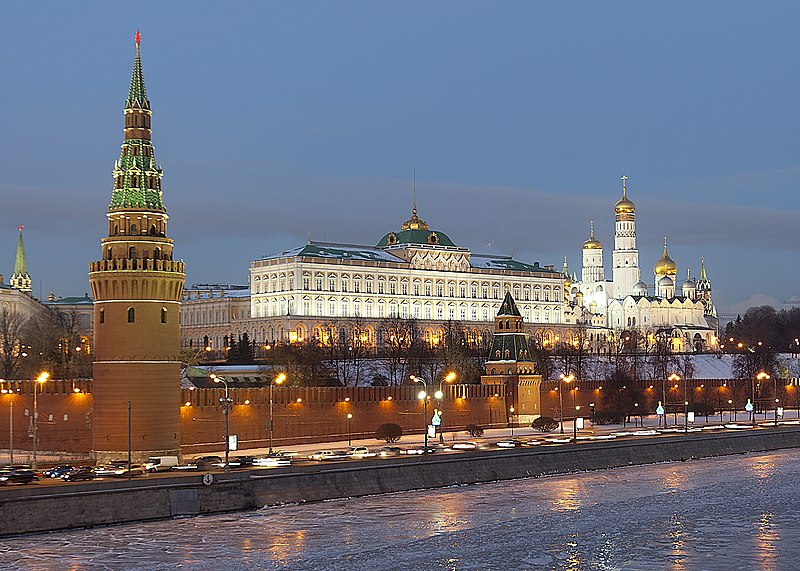
Gleb Karakulov, a captain in the Federal Guard Service, has defected from Russia to Turkey and revealed in an interview that Vladimir Putin is a 'war criminal' and is extremely paranoid about

Meghan Markle is set to receive a Women of Vision award from Gloria Steinem at the Ms. Foundation's annual gala in New York next month. The Duchess of Sussex is being honored for her
McDonald's prepares to lay off corporate staff, closes all US offices and cancels in-person meetings

Fast-food giant McDonald's has temporarily closed all of its US offices in preparation for a round of layoffs. In an internal memo seen by The Wall Street Journal, McDonald's revealed that the
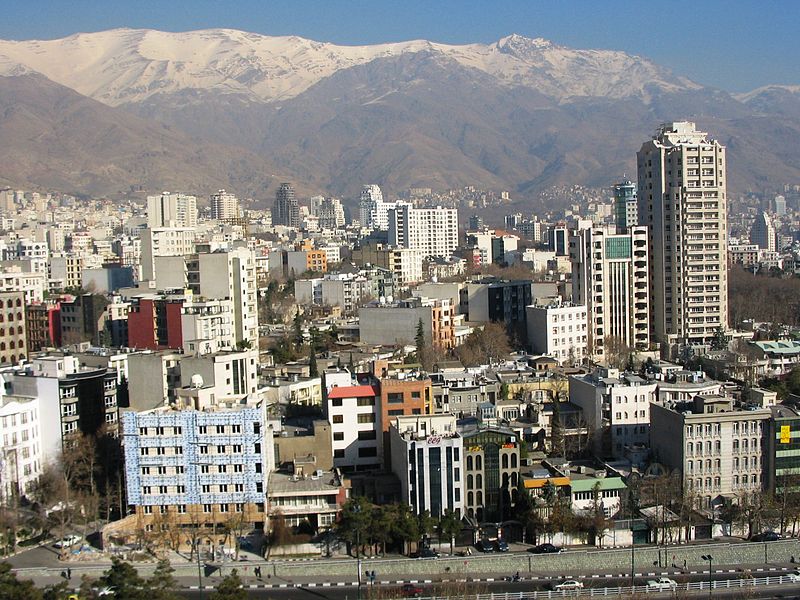
Two women in Iran have been arrested after being attacked with yogurt for not covering their hair in public. The attack was caught on camera and went viral on social media. In the video, the

The British Ambassador to Japan, Julia Longbottom, has urged energy companies to seize the opportunities presented by the UK's trade deal with 11 Asian and Pacific countries, following its





















